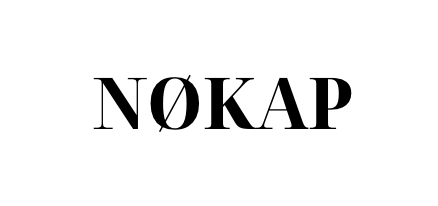More and more, I’ve seen individuals partake in a personal “social media detox.”
A social media detox is a conscious elimination of social media use for a set period of time. While some choose to take time away from social media to rest their minds or minimize their time in front of a screen, others participate in the detox based on the premise that social media is “toxic.” And that’s where I don’t agree.
It’s easy to consider social media toxic when you think of it as anything other than a tool. In the same way salt is a condiment or a tool for enhancing food, social media is a tool for networking, communication, business, relationships, etc.
A message in itself may be toxic, and a way of thinking may be toxic, but a platform is not toxic. It’s simply a medium through which expression occurs. Although the expression or user-generated content may be toxic, a platform is still just a host for that expression.
You see, our perceptions, assumptions, and mindsets are the toxic agents. They introduce and generate comparison, fear, joy, excitement, doubt, hope, worry, or jealousy based on the way images and text are processed. An internal response stems from the way your mind chooses to receive a message.
Our ideas of the way things should be changes the way we will perceive those things. For example, when I signed up for Instagram, I knew I was entering a space where I believed all users would post only the best representation of themselves in the best pictures. I even acknowledged that some of the content would be edited and manipulated in such a way to simulate perfection, even if not originally so.
Thus, when I see “perfect” posts, I am not tempted toward comparison or even judgment because I recognize that’s what the platform is for.
Our attitude toward social media is individualistic. The level of toxicity we perceive in social media is personal and results from our thinking tendencies.
Assuming social media is toxic, how many social media detoxes would it take before being able to use social media freely, with immunity to its toxicity and without the need for regular detox?
Or is social media a toxic dungeon we subject ourselves to due to a lack of discernment in selecting a healthy environment or as an escape from a less-desirable reality?
Chances are if you need to detox from something, it was never any good for you to begin with…
If the idea of social media toxicity arises out of our own unstable interpretation of ourselves and reality through insecurities, then we need to create systems of checks and balances within our minds to move past the defense mechanism that is quick to label unwelcome feelings brought by social media posts as toxic.
To understand this, I often give a personal example of how I approach fear. I am personally not afraid of anything. I cannot rationalize fear; therefore, I do not accept it.
If someone asks,
“What about the dark?” I say I’ll turn the lights on.
“What about bugs and critters?” I’m big enough to crush them beneath my feet.
“What about death?” As a born-again Christian, I know where I’m going.
I take everything else one step at a time and move forward in prayer through everything.
The same concept can be applied to perceived toxicity in social media. Often, our desire to have a social media detox originates from deeper internal issues than the content itself. Ask yourself why you need to detox. Is it comparison? Fear-of-missing-out? Jealousy? Addiction? Sadness?
As you browse social media platforms, do you have feelings of inadequacy? Do you feel like you’re not good enough? My advice is to get out of your head! Realize your inherent value simply by virtue of being human.
If you feel the need to compare, remind yourself that everyone is unique and everyone possesses a treasure that only they can release to the world. If you feel inadequate, remind yourself that you are only viewing a corner of someone’s reality. In fact, the corner they show may not even be a reality at all. If you are struck with jealousy or fear-of-missing-out, go put on a fun outfit and create your own adventure; document it too!
More specifically, I have also noticed the hashtag #MakeInstagramCasual circulate on Instagram recently as if Instagram’s existence doesn’t depend on you. The whole purpose of social media is to connect with others through user-generated content. In other words, social media is as casual or high stakes as you make it.
Ultimately, the hashtag provides an excuse to post anything a user perceives to be of lower quality. The hashtag is meant to protect from pressure and social judgment. It almost works as an assurance to self that the platform is being used correctly and a subtle way to guilt all those who are not posting “casually.”
As a healthy social media user, your goal should be to adopt a neutral perspective. Take in each image and message with context. Forgo the hasty declaration of toxicity and look internally instead. Understand that content can never be more valuable than you are.
The existence of social media, the perpetuation of trends, and content usefulness all depend on you, the user. Challenge your mind. Take back control of what you’ve always owned.

